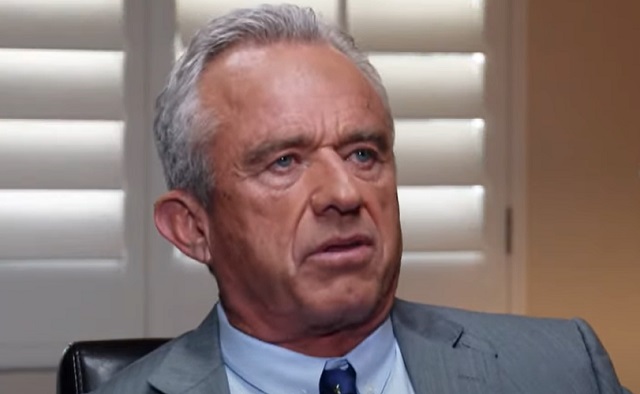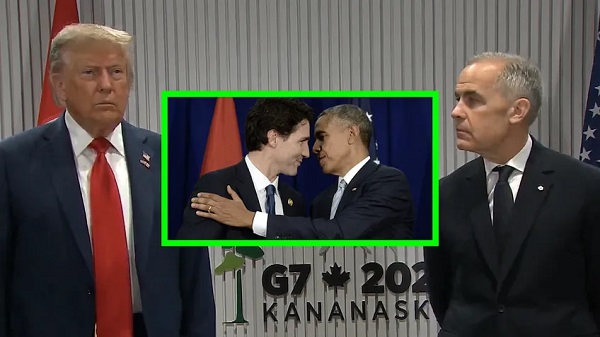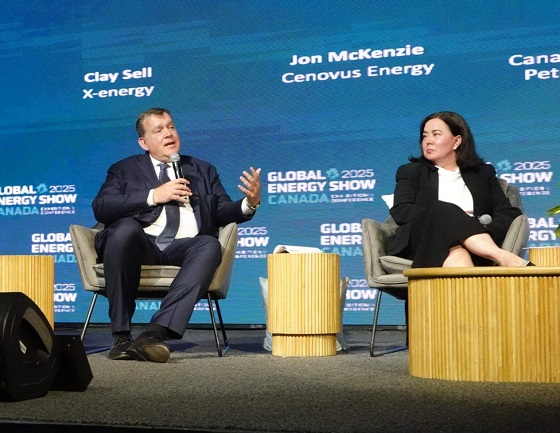By Emily Mangiaracina
Independent presidential candidate Robert F. Kennedy Jr. said in an interview with Raymond Arroyo that he is the only presidential candidate who has ever been denied Secret Service protection upon request.
In an exclusive Thursday interview with EWTN anchor Raymond Arroyo, independent presidential candidate Robert F. Kennedy Jr. slammed the “politicization” of the U.S. government under Joe Biden as “very, very troubling,” pointing out that this has involved unprecedented violations of the constitution.
“The liberal media are sanctioning and condoning the politicization of the CIA, the FBI, the IRS, and now the Secret Service by President Biden,” Kennedy told Arroyo. “I think it’s very, very troubling for our Republic that these agencies are now being turned into political instruments by the president in power.
As evidence of this, Kennedy told how he is the “first presidential candidate in history” that has requested Secret Service protection and “been denied,” noting that there have been 44 candidates who “have been given protection prior to the 120-day mandate,” referring to the law requiring that major presidential candidates be given Secret Service protection within 120 days of a general election.
Arroyo called this “mind-boggling” considering his family history, alluding to the assassinations of his uncle, John F. Kennedy, and his father, and Robert F. Kennedy.
Kennedy suspects that the refusal of protection is the Biden administration’s way of forcing him to spend his own money on security so that he has less funds to devote to his presidential campaign.
He told Arroyo he has had four break-ins at his house since he announced he is running for president, but he remains undeterred in his bid for the presidency, now as an Independent.
While Kennedy believes Donald Trump is threat to the country, he noted to Arroyo that he recently said he “could make the argument that President Biden was just as much a danger to the Republic as President Trump.” In fact, Kennedy said in an interview earlier this month that Biden is arguably “a much worse threat to democracy,” citing his censorship of his political opponents.
“President Biden is the first president in history to censor his political opponents,” Kennedy told Arroyo, noting that he has thus far won a case in a federal district court that was upheld by the federal court of appeals that “found exactly that.”
“Exactly 37 hours after he took oath of office, President Biden’s White House began ordering the social media sites to remove me, remove my platforms from Instagram, Facebook, Twitter … ”
“In our country, we passed the first amendment of the constitution specifically to stop government officials from silencing their opponents. Because we know … that it is the beginning of a slippery slope that gives them license for any kind of atrocity,” Kennedy told Arroyo.
In fact, the Biden administration has not only censored but targeted and prosecuted its political opponents as well as citizens who have opposed the apparent “sacred cows” of the administration.
For example, Attorney General Merrick Garland ordered federal authorities in October 2021 to be ready to prosecute citizens, including concerned parents, who spoke out at school board meetings against COVID regulations and the framing of sexual and race discussion in classrooms.
Multiple FBI offices also labeled traditional Latin Mass Catholics as potential extremists, citing an Atlantic article about the Rosary being a weapon as well as the discredited Southern Poverty Law Center.
Israeli-Palestinian conflict
Moving on to the topic of the Israeli-Palestinian conflict, Kennedy shared nuanced views that recognize injustices committed by both Hamas and the state of Israel. He referred to himself as “extremely pro-Palestinian,” and believes they “have a right to their own state.”
However, he also does not “see that Israel has any choice but to eradicate Hamas,” adding that he doesn’t conflate Hamas, “an agent of Iran,” with the Palestinian people.
“Hamas is a kleptocracy — it steals money,” said Kennedy, going on to explain that the leaders of Hamas are billionaires. “They are stealing international aid funding which is meant to help the Palestinian people, and the money they don’t steal, they’re using to build underground tunnels, rather than schools” and useful infrastructure.
Hamas has stated that they do not want land, peace, or negotiations, but only one thing — “the eradication of Israel,” said Kennedy, who shared that he has read their “covenant,” which “specifically says any negotiation with Israel is a violation of Islamic law.”
“When you say ceasefire, what are you talking about? Because Hamas doesn’t want to stop firing these rockets.”
Kennedy stressed that he considers himself “anti-war,” and that he believes World War II is the only “moral” war the U.S. has participated in over the past century.
Abortion
Kennedy reiterated his support for abortion, the killing of unborn children, when asked to address the topic. He repeated the refrain of pro-abortion advocates to Arroyo, telling him that women “ought to have bodily autonomy” and that the government should not be interfering with that, failing to address the fact that a separate human life is at stake in abortion.
“I don’t feel that I’m doctrinaire on either side … I want to find a common ground where Americans can agree on it,” Kennedy said.
Calling abortion a “tragedy” and each one a “trauma,” Kennedy said he would “like to maximize choice but also minimize the number of abortions every year,” at least in part by subsidizing daycare, using money that would be made available by ending U.S. involvement in the Ukraine war.
When Arroyo pushed back on the idea that subsidized daycare would make a difference for mothers who have abortions because having a baby “would be too radical a change in their life,” Kennedy suggested another solution.
“I think we also need to have the best adoption system … and adoption placement systems in the world so people have that option as well. And I think we need to give people every option that they can to bring the baby to term, but not force them. Give them every option, so that it becomes attractive to them,” Kennedy said.
When confronted about whether he supports the Biden administration’s decision to make abortion pills available at every pharmacy, Kennedy eventually admitted that he would not reverse this decision but qualified that he is “worried about every pharmaceutical drug.”
He shared that Peter C. Gøtzsche, “one of the most influential epidemiologists on the planet,” “published a study this week that showed that pharmaceutical drugs are now the primary cause of death in our country.”
“Violence, the mental illness, the suicide, the homicide … these can all be an impact of pharmaceutical drugs … and we know almost nothing about them. Why? Because the pharma industry controls the NIH, CDC, and FDA.”
As with other drugs, Kennedy believes that “everyone should know the side effects (and) the risks of the abortion pill, so that everyone has “an informed choice.”
Kennedy also told Arroyo during their interview that he is opposed to the Biden administration’s new interpretation of Title IX — written by his uncle — according to which gender-confused men can participate in women’s sports.
“I don’t believe that people who are born men ought to be able to participate in consequential sports … against women,” said Kennedy, adding that he is proud of his uncle’s achievement in helping women’s sports to acquire rights equal to men’s sports.
‘Spiritual realignment’
Kennedy shared with Arroyo that while the Catholic faith was the “centerpiece” of his life growing up, he became distant from God during a 13-year period after his father’s assassination when he became addicted to drugs.
“During that period of time, I wouldn’t say I lost my faith, but when you’re living against conscience, which you have to do if you’re addicted to drugs, you push God out over the periphery of your horizon,” Kennedy said. “So the concept of God was, although it never was erased from me, it was just a distant concept that was not part of my day-to-day life.”
According to Kennedy, his recovery “involved a profound spiritual realignment” that has been the center of his life ever since.
While he lost his compulsion to use drugs at that point, he noted, “you can’t live off the laurels of a spiritual awakening. You have to renew it every day, and you renew it through service to other people.”
In response to questions from Arroyo, Kennedy shared that he prays “pretty much all day,” and that his faith keeps him “peaceful” even when he is attacked from all sides for his views and his presidential run, even by family.
“I think of it as like being on the ocean during (a) storm when there’s a tremendous amount of turbulence on the surface, but it allows me to sink below the surface and be in the stillness. There’s the confidence that all of that is an illusion, it’s a distraction,” Kennedy said.
“All of the figures that I admire … went through a period of rejection in their lives. Rejection by their families, rejection by their friends … being pariahs within their communities. In many ways, their achievements were meaningful because of that social disdain that they experienced during parts of their life.”






















